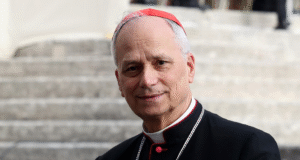In a startling development, UK Neo-Nazis convicted of planning a ‘race war’ attack on a mosque and synagogue have been sentenced, shedding light on the disturbing rise of far-right extremism. The perpetrators, with connections to violent white supremacist ideologies, were plotting a horrific attack aimed at inciting violence between racial and religious communities. Their plan was thwarted by authorities, but it raises significant questions about the increasing threat posed by such extremist groups in the UK—and globally.
The news has not only caught the attention of UK residents but also sparked a broader conversation about the surge of hate crimes and racial intolerance worldwide, especially in Western nations like the United States. This article delves into the details of the case, its implications, and the lessons that can be drawn from it.
1. The Conviction of UK Neo-Nazis:
In a landmark ruling, a group of individuals associated with neo-Nazi groups in the UK was convicted of planning a large-scale racial attack. These extremists were found guilty of attempting to start a ‘race war’ through targeted violence against two significant religious institutions: a mosque and a synagogue. The attack was not only meant to incite fear but also to provoke a clash between communities, escalating racial tension in the UK.
2. The Importance of Religious Institutions in the Attack:
The choice of a mosque and synagogue as targets highlights the growing trend of religious intolerance, particularly towards minority religious groups. These locations, often seen as sanctuaries for peace and community building, have increasingly become symbols of vulnerability to extremist forces. Understanding why these institutions were chosen is essential in grasping the gravity of this planned attack.
Breaking Down the Extremist Agenda:
The group of neo-Nazis involved in the plot shared a common ideology: the belief that society was becoming too diverse, and a return to a racially pure homeland was necessary. They believed violence was the only way to reclaim their version of the “ideal” society. To put their plans into motion, they had sourced weapons and coordinated logistics in secrecy, underestimating the vigilance of law enforcement agencies.
The Role of Authorities in Thwarting the Attack:
The UK authorities acted quickly, using both traditional intelligence and new surveillance technologies to uncover the plot. Their actions demonstrate the critical role of law enforcement in preventing such attacks before they can be carried out. It also highlights the importance of collaboration between various international agencies to track and prevent extremism from spreading.
Focus on the Global Implications:
Though this incident occurred in the UK, its implications extend beyond national borders. The rise of far-right extremism, especially neo-Nazi groups, is not unique to the UK. Countries like the USA, Germany, and France have all seen similar trends. The global nature of hate groups makes it essential for nations to come together, share information, and implement strategies to combat extremism worldwide.
Comparison of Extremist Groups’ Activities (UK vs. USA)
| Country | Type of Extremism | Recent Attacks | Law Enforcement Actions | Impact on Communities |
|---|---|---|---|---|
| UK | Neo-Nazism, White Supremacy | Mosque & Synagogue Plot | Quick intervention, surveillance | Increased community fears, but foiled attack |
| USA | White Nationalism, Far-Right | Charlottesville Rally, Tree of Life Synagogue | Legal prosecution, surveillance, and intelligence sharing | Continued political polarization and racial division |
Key Details of the Conviction: Uncovering the Extremist Plot
The conviction of the UK neo-Nazis highlights a chilling reality of modern extremism. The three individuals were involved in plotting an attack that was meant to create a racial and religious war between communities in the UK. They were found to have been part of a far-right group with strong connections to neo-Nazi ideologies. The group, which had been under surveillance for months, had discussed targeting specific mosques and synagogues, places they considered symbols of the “enemy.” Authorities discovered evidence of bomb-making materials, firearms, and extremist propaganda that revealed the level of preparation behind their plot.
In addition to the weapons and explosives, investigators uncovered detailed online correspondence, indicating the group’s intention to stage violent acts during religious holidays to maximize the impact. These extremists believed that by attacking religious centers, they could incite widespread fear and division, further advancing their radical agenda. One of the most unsettling discoveries was the group’s discussion of targeting individuals in positions of power and influence in their bid to create societal chaos. Fortunately, their plot was disrupted before any attacks were carried out.
The Role of Online Radicalization in Fueling Extremist Actions
The case also sheds light on the role of online radicalization in fueling violent extremism. The convicted individuals were heavily influenced by extremist online forums, where they engaged with like-minded individuals, sharing information on weaponry, explosives, and tactics for terror. These online spaces provide fertile ground for hate groups to recruit, train, and radicalize individuals who may otherwise not have been exposed to such ideologies. The UK government and law enforcement agencies are now grappling with the challenge of curbing online extremism, which has proven difficult due to the decentralized and anonymous nature of the internet.
The role of social media and encrypted messaging platforms in the propagation of hate speech and extremist content is an ongoing concern. Many extremist groups use these platforms to recruit new members, spread propaganda, and plan violent actions, all while evading detection. The UK’s Counter Terrorism Internet Referral Unit (CTIRU) has been working closely with tech companies to identify and remove harmful content, but the problem persists, calling for a more comprehensive global approach to combat online extremism.
Impact on Interfaith Relations and Community Safety
The planned attack on a mosque and synagogue underscores the deep divide between racial and religious communities in some parts of the UK. It brings into sharp focus the need for stronger interfaith dialogue and community safety initiatives. Religious leaders from various faiths have expressed concern over the growing hate-driven violence, calling for solidarity between different communities to combat division and intolerance. After the conviction, the UK government has pledged to invest more in community cohesion programs, aimed at fostering better relationships between different ethnic and religious groups.
Furthermore, the case highlights the importance of vigilance and cooperation among law enforcement, local communities, and national agencies. As radicalization becomes more widespread, collaborative efforts to address hate crime and promote tolerance are critical to preventing similar plots in the future. By providing communities with resources to combat extremism, authorities can help dismantle the infrastructure that supports these dangerous ideologies.
Conclusion:
This case serves as a wake-up call, not just for the UK, but for the entire world. As extremism grows, it’s more important than ever for society to remain vigilant and for authorities to work together to prevent such attacks before they happen. Religious tolerance, peaceful coexistence, and unity among diverse communities must be prioritized to combat the rising threat of hate-fueled violence.
[USnewsSphere.com / al.]





